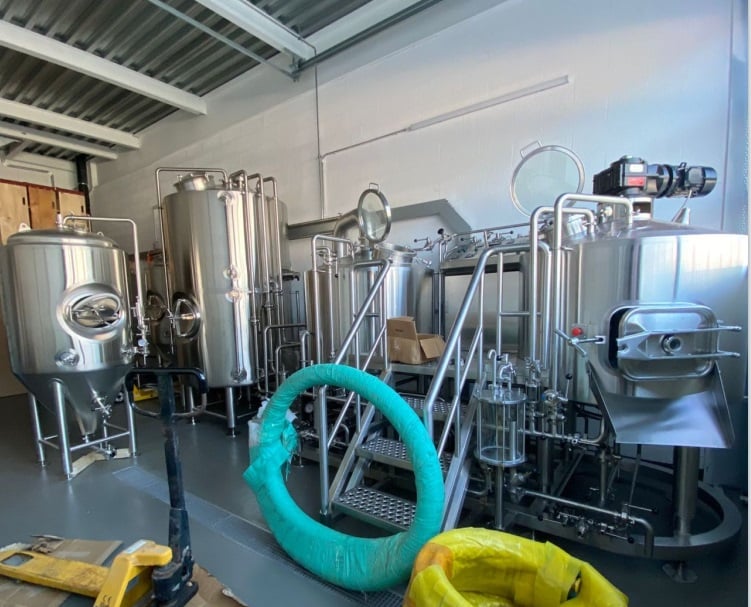How to Choose the Best Craft Beer Fermenter
Overview of Craft Beer Fermenters
Craft beer fermenters are at the heart of brewing delicious, high-quality craft beer. These specialized vessels are where the magic happens: yeast ferments the wort into alcohol, creating the distinctive flavors and aromas that beer enthusiasts love. Choosing the right fermenter isn’t just about functionality; it’s about ensuring your brewing process is efficient, consistent, and scalable to meet your goals—whether you’re a hobbyist or a professional brewer.
From stainless steel models to more budget-friendly plastic options, the market for craft beer fermenters is as diverse as the beers themselves. Understanding the differences between fermenters, their advantages, and what professional brewers prefer will help you make an informed decision.
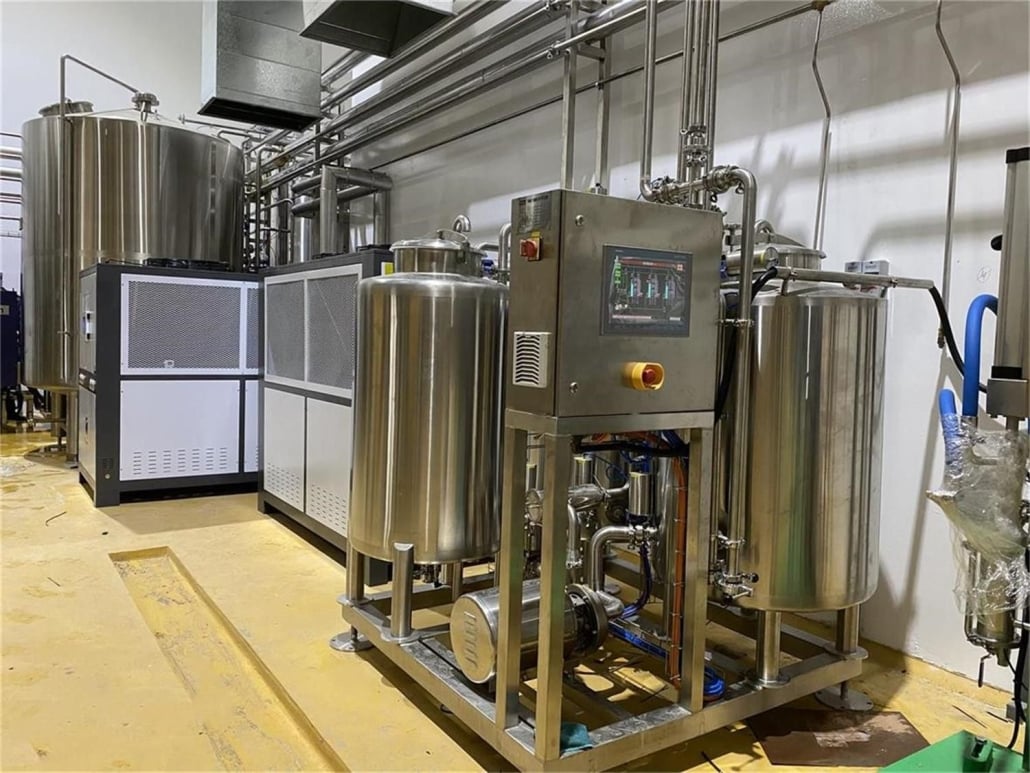
What Is a Craft Beer Fermenter?
A craft beer fermenter is a vessel designed specifically for the fermentation stage of beer production. During this process, yeast converts sugars in the wort into alcohol and carbon dioxide. Fermenters come in various shapes, sizes, and materials, ranging from homebrew kits to commercial-grade equipment.
Craft beer fermenters often include features such as temperature control, conical bottoms for easy yeast harvesting, and airlocks to prevent contamination. These specialized features help maintain optimal conditions for fermentation, ensuring a better beer every time.
Craft Beer Fermenter vs. Regular Fermenter
So, what sets a craft beer fermenter apart from a regular one? It’s all about precision, durability, and scalability. Regular fermenters—like basic plastic buckets—work fine for beginners, but they lack the advanced features of craft beer fermenters.
Craft beer fermenters are typically built with conical designs, allowing brewers to separate trub (sediment) from beer easily. They also come with advanced temperature control systems, ensuring fermentation happens at the right conditions. Unlike regular fermenters, which may wear out quickly, craft beer fermenters are designed for repeated use and can withstand higher levels of sanitation processes.
In essence, craft beer fermenters cater to serious brewers looking to refine their processes and create consistent, high-quality beer.
What Do Professional Brewers Prefer for Craft Beer Fermenters?
Professional brewers almost universally lean towards stainless steel craft beer fermenters. Why? Stainless steel offers unmatched durability, sanitation, and temperature control. Unlike plastic or glass, stainless steel doesn’t retain odors, stain, or degrade over time. It’s also resistant to scratches, which can harbor bacteria—a critical concern in professional brewing.
Additionally, stainless steel fermenters often feature advanced control systems for temperature regulation and pressure adjustments. These features are essential for scaling production while maintaining quality. For large-scale operations, brewers typically use conical fermenters with built-in valves for easy transfer and cleaning.
Stainless Steel Craft Beer Fermenter vs. Plastic Fermenter
| Feature | Stainless Steel Fermenter | Plastic Fermenter |
|---|---|---|
| Durability | Extremely durable; lasts decades | Prone to scratching, staining, and wear over time |
| Sanitation | Easy to sanitize; resistant to bacteria | Harder to clean; scratches can harbor bacteria |
| Temperature Control | Advanced systems for precise regulation | Limited control; relies on external tools |
| Cost | Expensive upfront but cost-effective long-term | Budget-friendly; suitable for beginners |
| Portability | Heavier but more stable | Lightweight and easier to move |
| Capacity Options | Wide range of sizes for scalability | Limited options, mainly for small batches |


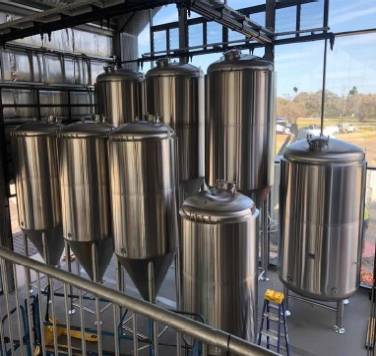
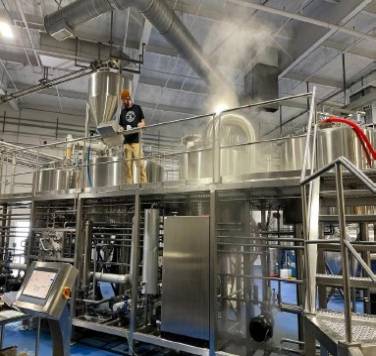
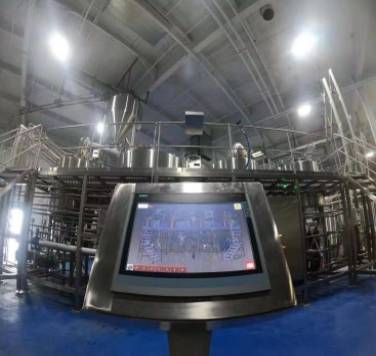
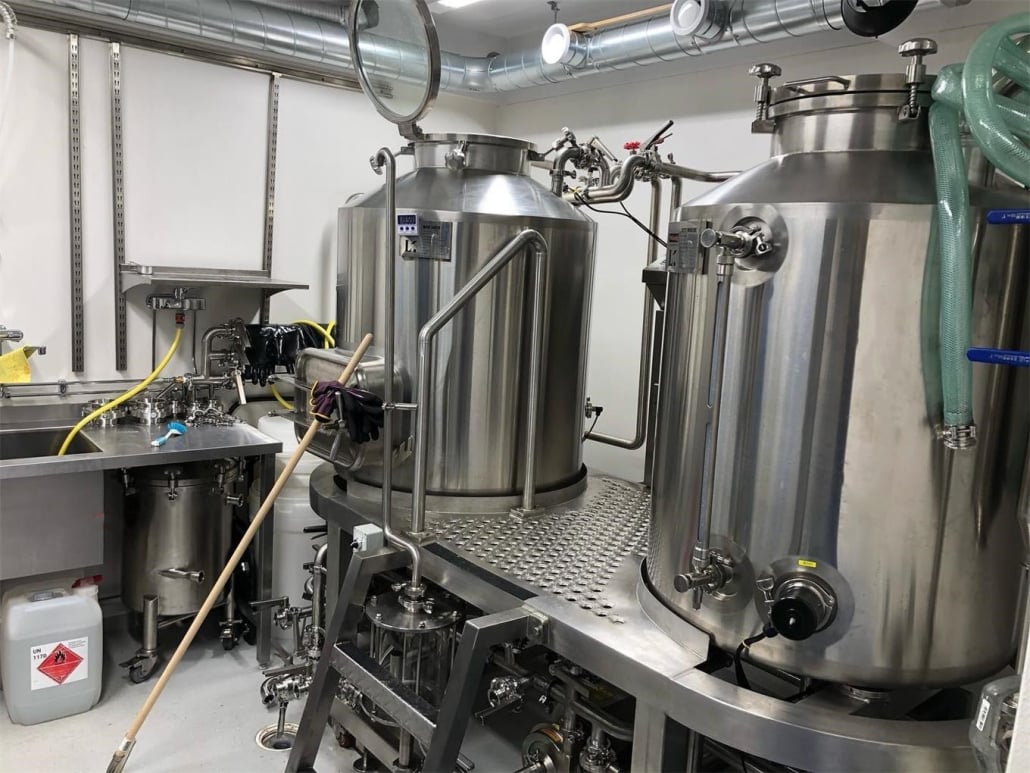
Types of Craft Beer Fermenters
| Type | Description | Best For |
|---|---|---|
| Conical Fermenters | Conical shape allows easy separation of trub from beer. Features valves for harvesting yeast. | Professionals and serious homebrewers |
| Unitanks | Combines fermentation and carbonation in one vessel. Can handle pressurization. | Breweries aiming for efficiency |
| Plastic Fermenters | Affordable and lightweight but less durable. Ideal for beginners. | Hobbyists and beginners |
| Glass Carboys | Transparent, allowing brewers to monitor fermentation visually. Fragile but functional. | Small-batch brewers |
| Open Fermenters | Allow exposure to air for unique fermentation processes. Requires careful monitoring. | Specialty and experimental brewing |
Top Suppliers of Craft Beer Fermenters
| Supplier | Specialization | Notable Features |
|---|---|---|
| Blichmann Engineering | High-end homebrewing equipment | Stainless steel fermenters with advanced temperature control |
| Ss Brewtech | Professional-grade fermenters for all scales | Conical fermenters and unitanks |
| Spike Brewing | Customizable stainless steel fermenters | Modular designs, professional-grade durability |
| Grainfather | All-in-one brewing systems | Electric fermenters with integrated temperature regulation |
| Anvil Brewing | Affordable options for homebrewers | Durable stainless steel fermenters with simple features |
Factors to Consider When Choosing a Craft Beer Fermenter
When picking a craft beer fermenter, there are several factors to weigh. First, think about material: Stainless steel is the gold standard for durability and sanitation, while plastic is cheaper and great for getting started. Then, consider size and capacity. How much beer do you plan to brew? Homebrewers may only need a 5-gallon fermenter, while professional brewers require fermenters holding hundreds or thousands of gallons.
Don’t overlook temperature control. Fermentation is temperature-sensitive, and having built-in controls can save you a lot of headaches. For professionals, features like pressure control, valves, and cleaning mechanisms are vital for scaling up production.
Finally, think about your budget. Investing in a high-quality fermenter upfront can save money over time, especially if you plan to brew regularly or scale your operation.

FAQ
| Question | Answer |
|---|---|
| What’s the best material for a fermenter? | Stainless steel is the most durable, sanitary, and versatile option. |
| Can I use a plastic bucket for brewing craft beer? | Yes, but it’s better suited for beginners or small batches. |
| How do I clean a craft beer fermenter? | Use a specialized cleaning solution and avoid scratching the surface. |
| Are glass carboys safe for fermentation? | Yes, but they are fragile and lack advanced features like temperature control. |
| What size fermenter should I buy? | It depends on your batch size—5 gallons for homebrewing, larger for pro use. |
| Do I need temperature control for fermentation? | Absolutely! It’s crucial for consistent, high-quality results. |
| How long does a stainless steel fermenter last? | With proper care, it can last decades. |
Additional FAQs on Choosing a Craft Beer Fermenter (2025)
1) Do I need a pressure-capable craft beer fermenter for modern styles?
- Recommended for lagers and hop-forward ales. Pressure fermentation (5–15 psi) reduces esters, enables spunding/natural carbonation, and supports closed transfers that protect aroma.
2) What interior finish should I look for to improve hygiene and CIP?
- A polished, passivated finish of Ra ≤ 0.8 µm is standard; electropolished internals further reduce biofilm risk and speed cleaning.
3) How should I size my fermenter relative to batch volume?
- Leave 15–20% headspace for krausen. For a 5-gallon batch, choose 6–7 gallons; for 1–3 BBL, plan a blow-off or use pressure control.
4) Stainless vs PET “all-rounder” fermenters: which is best value?
- Stainless conicals/unitanks win on lifespan, sanitation, and pressure handling. PET pressure fermenters are lower CAPEX and solid for closed transfers if replaced every 1–3 years.
5) Which QA tools pair best with a new fermenter purchase?
- Calibrated thermometer and pH meter, hydrometer/refractometer, CO2/pressure gauge, and at packaging, access to DO/TPO checks (own device or third-party lab/mobile service).
2025 Industry Trends for Craft Beer Fermenters
- Oxygen control by default: Closed transfers, CO2-purged dry hop dosing, and low-oxygen hot-side practices are standard for quality-focused breweries.
- Smart fermentation: Wi‑Fi/Bluetooth controllers with gravity/temperature logging and alerting improve repeatability and reduce off-flavors.
- Sustainability and efficiency: Heat recovery to HLT, insulated vessels, and optimized CIP cut thermal/water use by 15–25%.
- Hygienic design upgrades: More Ra ≤ 0.8 µm or electropolished internals, EPDM/FKM gasket kits, and validated PRVs on pressure-ready unitanks.
- Modular scaling: Stackable conicals and manifolded unitanks enable expansion without full cellar rework.
2025 Benchmarks and Selection KPIs for Craft Beer Fermenters
| Metric (2025) | Target/Typical Range | Why it matters |
|---|---|---|
| Interior surface roughness (Ra) | ≤ 0.8 µm; premium ≤ 0.5 µm | Faster, more reliable CIP; reduced biofilm risk |
| Pressure rating (unitank) | 1–3 bar (15–45 psi) | Enables spunding, natural carb, closed transfers |
| Knock-out DO (post chiller) | < 50–150 ppb | Protects hop aroma and flavor stability |
| Packaged DO (small-scale) | < 100–200 ppb | Shelf-life for IPAs and lagers |
| Water use per hl beer | 3.5–5.5 hl/hl | Sustainability/utility cost KPI |
| Cooling capacity per active 10 hL FV | 2–4 kW (+20–30% headroom) | Maintains temp control and crash capability |
| Gasket replacement cadence | 6–12 months or per wear | Prevents oxygen ingress and contamination |
Selected sources: Brewers Association (QA and sustainability), ASBC Methods of Analysis, OEM specifications (Ss Brewtech, Spike Brewing, Blichmann, GEA/Krones), industry press (BrewBound, Craft Brewing Business), 2024–2025.
Latest Research Cases
Case Study 1: Closed Transfers + Spunding Improve IPA Stability (2025)
- Background: Small craft brewery reported hop aroma fade and mild oxidation by day 30 in cans.
- Solution: Upgraded to pressure-capable stainless unitanks (2 bar), standardized CO2-purged dry hop dosing, closed transfer to purged brite and filler; instituted weekly packaged DO spot checks.
- Results: Median packaged DO decreased from ~230 ppb to ~95 ppb; sensory shelf life extended ~4 weeks at 4°C; returns dropped 33% over two quarters.
Case Study 2: Electropolished Fermenters Cut CIP Time and Water Use (2024)
- Background: Brewpub struggled with long tank turnaround and variable ATP swab results on legacy FVs.
- Solution: Installed electropolished Ra ≤ 0.5 µm conicals with rotary spray devices; validated CIP coverage and optimized chemical concentrations.
- Results: CIP cycle time reduced 20–22%; water/hl improved from 5.8 to 4.3; ATP failures eliminated over 60 days; labor hours per turn fell 12%.
Expert Opinions
- John Palmer, Author of “How to Brew”
- Viewpoint: “Temperature control and sanitation are the first 80%. Choose a craft beer fermenter that makes both reliable, then add pressure capability and closed transfers.”
- Mary Pellettieri, QA Consultant; Author of “Quality Management for Craft Beer”
- Viewpoint: “Measure what matters—DO/TPO and carbonation. Tie fermenter SOPs to data so quality doesn’t drift as you scale.”
- Tom Shellhammer, Ph.D., Professor of Fermentation Science, Oregon State University
- Viewpoint: “Equipment that limits oxygen ingress and manages trub carryover materially improves flavor stability, especially for hop-forward beers.”
Practical Tools and Resources
- Brewers Association QA, safety, and sustainability resources: https://www.brewersassociation.org
- ASBC Methods of Analysis (oxygen, sensory, microbiology): https://www.asbcnet.org
- OEM specs and manuals for fermenters/unitanks: https://www.ssbrewtech.com | https://spikebrewing.com | https://www.blichmannengineering.com
- Instrumentation for DO/TPO and CO2: https://www.anton-paar.com
- ProBrewer community (cellar design, CIP validation, PRV testing): https://www.probrewer.com
- DSIRE database (US incentives for energy/water efficiency): https://www.dsireusa.org
- OSHA safety guidance (CO2 monitoring, pressure vessels): https://www.osha.gov
Note: Verify pressure vessel certifications (ASME/CE), PRV calibration, and elastomer compatibility (EPDM/FKM/silicone) with your cleaners/sanitizers. Validate CIP coverage and log DO/TPO at knock-out and packaging for consistent outcomes across batches.
Last updated: 2025-09-29
Changelog: Added 5 specialized FAQs, 2025 trend insights with KPI table, two fermenter-focused case studies, expert viewpoints, and vetted tools/resources aligned to craft beer fermenter selection and QA
Next review date & triggers: 2026-03-31 or earlier if OEM lead times or BA/ASBC DO/TPO benchmarks change materially, or new incentives for efficient/low-oxygen equipment are introduced
Share this entry
Interested in learning more about Brewing Systems including additional details and pricing information? Please use the form below to contact us!
YOLONG BREWERY EQUIPMENT FAQS
- Commercial Brewery / Craft Brewery / Microbrewery / Nanobrewery
- What is The Difference Between Craft Beer and Industrial Beer?
- The Bespoke Differences In Custom Brewing Systems
- Everything You Need to Know About Kettle Souring
- How to Choose Brewing Equipment for Your business?
- How To Choose The-Best Partner To Build Your Commercial Microbrewing System?
- Two Detection Sensors That You Need To Use In Your Brewhouse System
- Remote Control Applications in Brewing Equipment/How does it work?
- How To Clean Your Brand New Brewery Tanks?

